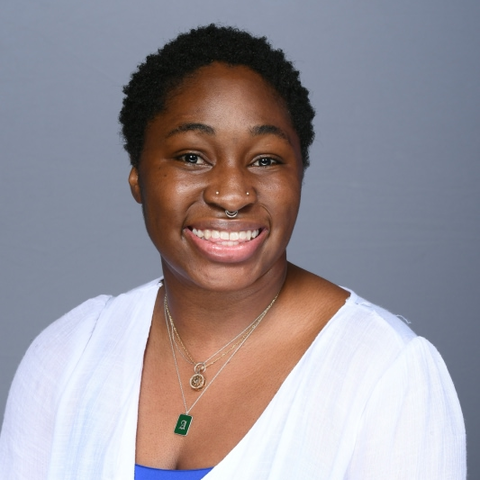Section Branding
Header Content
Descendants of victims of Forsyth County's 1912 racial cleansing return to share family history
Primary Content
The pews were full in Poplar Baptist Church in Buford last week. People gathered to listen to a panel of descendants of Black families who were forced out of nearby Forsyth County in its infamous 1912 racial cleansing.
Elon Butts Osby shared her story. She said her family rarely spoke of that time, and she didn’t know her mother had ever lived in Forsyth County until she was in her 30s.
“I don't even think they thought of it as history,” Osby said. “They thought of it as something. 'We survived it. Let's not bring it up again.' As I said earlier, my grandfather, William Bagley, had 60 acres and my mother was 2 when they had to leave.”
The panel was organized by volunteers with the Forsyth County Remembrance Project. In September 2021, the group placed a historical marker for Rob Edwards, the 24-year-old Black man whose lynching came right before the county purge. Renada Cincere is a volunteer on the project.
“I was a teacher in juvenile prison, so I've been with those kids,” she said. “I've seen what can happen when someone doesn't step in to say 'This is what's happened and we can't change it, but we can do things to make other people aware.'”
On a national level, U.S. Rep. Carolyn Bourdeaux is trying to increase public understanding of the history in the district she represents. She recently passed a resolution condemning the racial cleansing and supporting a day of remembrance for itsvictims. Bordeaux said the resolution is about combating white supremacy and seeking justice.
“We can address this painful part of North Georgia history while working to provide a better future for those who are wronged,” Bourdeaux said. “Within the last few weeks, the creation of a scholarship was announced.”
The four-year, $10,000 scholarship was created by a group of Forsyth church leaders for direct descendants of the Black families forced out of the county. At the same time, The Forsyth Historical Society has been working with the local school board to fold the 1912 purge into schools' history curriculum.
But the effort is facing opposition from leaders and community members opposed to what they call “critical race theory.”
Resident Latresha Jackson has seen the challenges to update curriculum in board meetings firsthand.
“While maybe no one in Forsyth ran people out in 1912, they are responsible for their actions now," she said, "and their actions is complete denial.”


